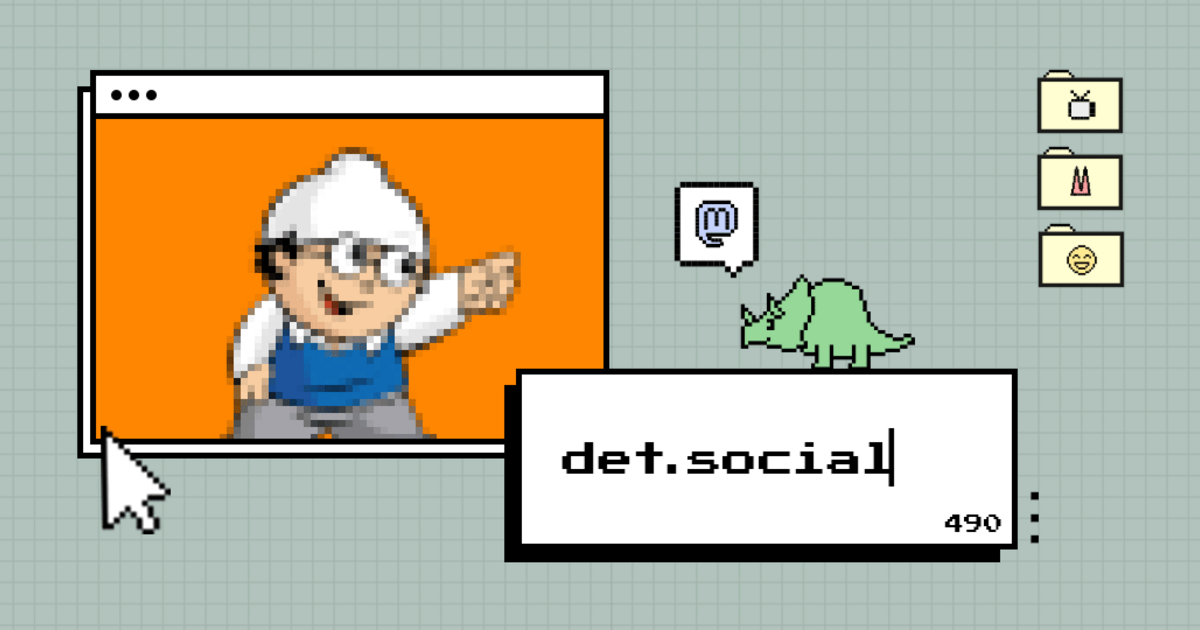det.social is one of the many independent Mastodon servers you can use to participate in the fediverse.

Mastodon Server des Unterhaltungsfernsehen Ehrenfeld zum dezentralen Diskurs.
Administered by:
Server stats:
1.7Kactive users
det.social: About · Profiles directory · Privacy policy
Mastodon: About · Get the app · Keyboard shortcuts · View source code · v4.4.3
#oop
0 posts · 0 participants · 0 posts today
TrendingLive feeds
Mastodon is the best way to keep up with what's happening.
Follow anyone across the fediverse and see it all in chronological order. No algorithms, ads, or clickbait in sight.
Create accountLoginDrag & drop to upload